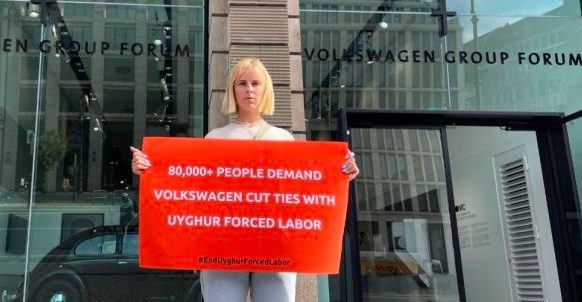
Forced labor victory: Volkswagen to exit Uyghur region
Volkswagen has officially sold its plant in China’s Uyghur region, marking a significant step amidst ongoing allegations of Uyghur forced labor in the region. After years of global scrutiny, the decision represents a win for human rights advocates worldwide. While Volkswagen cited economic factors and market challenges as motivations, this move aligns with growing pressure on corporations to uphold ethical standards in their supply chains.
Forbes reports that Volkswagen’s plant in Urumqi, established in 2013 through a joint venture with SAIC Motor, had become a focal point for allegations linking it to systemic abuses against Uyghur Muslims. Rights groups have accused the Chinese government of forcing Uyghurs into labor programs as part of its crackdown in the region. Though the plant ceased producing cars in 2019, concerns over its operations lingered, prompting significant public backlash. The sale to SMVIC, a Chinese state-owned enterprise, closes this chapter for Volkswagen, but raises questions about corporate accountability moving forward.
“Human rights are non-negotiable”
Volkswagen’s decision to sell its Uyghur plant comes after years of sustained pressure from human rights organizations and Western lawmakers over alleged forced labor in the region. In 2022, the company received a “red flag” ESG rating from Morgan Stanley Capital International, leading to investor divestments.
Although Volkswagen’s audit found “no evidence” of forced labor at the Uyghur region facility, critics noted the audit fell short of international standards. Additional scrutiny followed in February when U.S. Customs blocked imports of luxury vehicles under the Volkswagen Group, citing forced labor in the supply chain of a Chinese-made electronic component.
